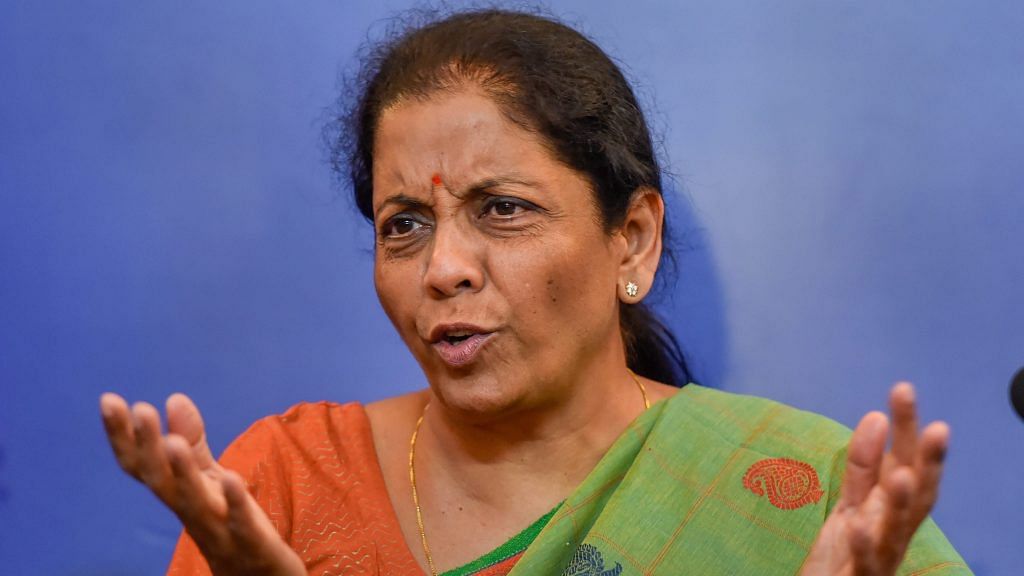Finance Minister Nirmala Sitharaman is not the only one to have partly attributed a problem in the economy to millennials’ lifestyle choices. Tuesday, when Sitharaman said that millennials’ preference for Uber and Ola has contributed to the slowdown in India’s automobile industry, she was just echoing what many policymakers are struggling with world over: How to best mesh millennials with the economy.
The US, too, is grappling with this question. In 2018, the Federal Reserve Board in Washington DC released a paper titled “Are Millennials Different?”. It concluded that millennials, though more educated, racially diverse and indifferent to marriage, “do not appear to have” consumption patterns different from earlier generations. In short: the economy dictates millennial choices, not the other way around.
As the economy world over falters, it is not just the millennials who are spending less, everyone is spending less.
Which is why ThePrint’s newsmaker of the week is India’s millennials.
Also read: Millennials & Gen Zs are not exactly a happier lot, says Deloitte survey
Who are the millennials?
The millennial generation constitutes anyone born between 1981 and 1997. So, in 2019, they are anyone between the ages of 22 and 38. Sandwiched between the Baby Boomers and Generation X, millennials have been lately made the scapegoat for many issues: faltering economy, rising debts, changing culture and societal norms, and, as the millennials would put it, for being ‘extra’.
A Deloitte study in 2019 of millennials across 42 countries revealed that not only are their trust and optimism reaching new lows, their priorities are also shifting. Millennials signalled a “low opinion of political and religious leaders”, were sceptical of traditional media, and had bleak expectations of the economy.
India will become the youngest country in the world by 2022 – the average age being 29. They already make up almost half (47 per cent) of the working population. As they increasingly enter the workforce, millennials will be the driving force of the Indian economy. Currently, India has 41 crore millennials, who are projected to invest Rs 2,34,33,79,50,00,000 (or $330 billion) annually by 2020.
And not all of them are Ola/Uber-riding city millennials.
Rural India’s millennials – over 30 crore in number – are also influencing consumption patterns and spending substantially. According to a study, they are likely to influence $220 billion in annual spending. Their spending is shaped by their educational aspirations and growing ambitions.
As more and more companies start tailoring to their demands, it would be wise for Indian economists to research this generation and for Indian policymakers to include the bustling millennials in their plans.
Also read: Nifty ideas for young millennials to save money in 2019
Lifestyle choices
Maruti Suzuki’s India’s executive director Shashank Srivastava challenged Nirmala Sitharaman’s theory for auto-slump Thursday. “The Ola and Uber factor may not be strong (enough) to contribute to the current state of slowdown. I think we need to watch and study it more before arriving at such a conclusion,” he said in an interview.
Time and again, studies, probably not the ones the finance minister cited, have shown that it is the state of the economy that dictates millennial choices. The lack of jobs, education loans, higher rent, the gig economy – all have contributed to millennials saving less, and not buying cars or homes.
American journalist Derek Thompson writes in The Atlantic, “…the fact that young people are buying fewer houses and cars doesn’t prove that they want fewer houses and cars. It might mean they simply can’t afford them.”
Millennials are digitally savvy and care more about well-being and social good. (Yes, that’s why the thrust on acting against climate change, that’s why the thrust on mental health, that’s why the unhappiness with rigid institutions, that’s why the boom of the instant-gratification economy).
If India is to become a $5-trillion economy, then millennials need to be taken on board, or on that Uber pool. Because it’s the economy, stupid.
